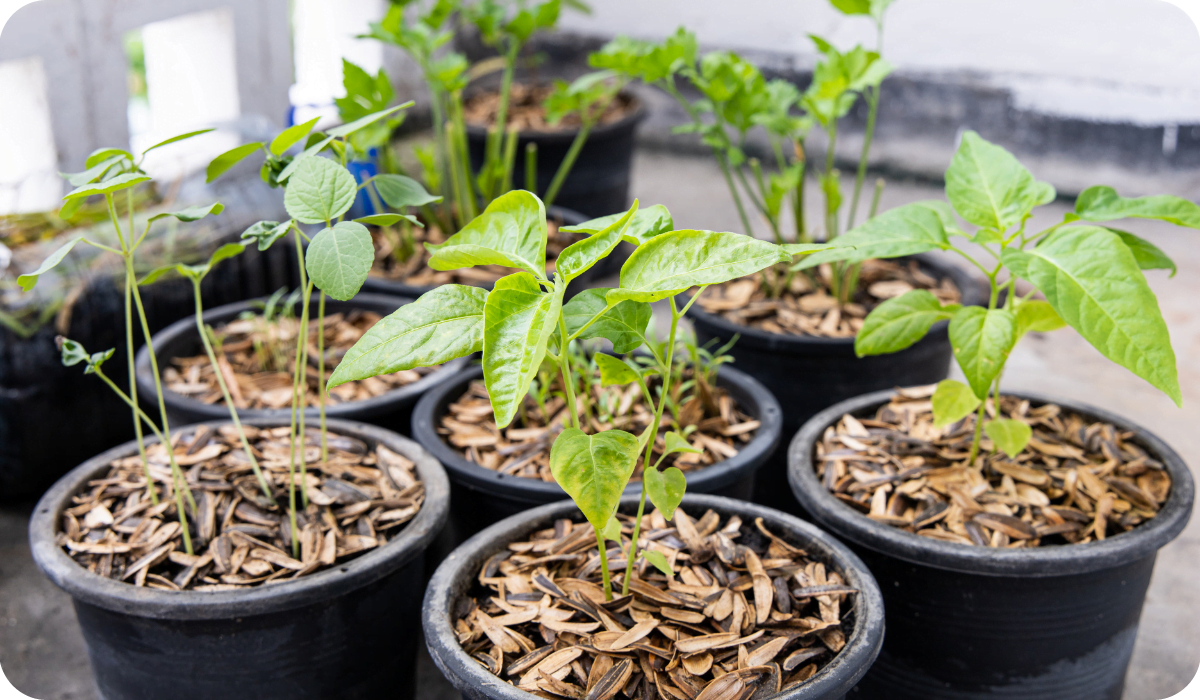
Key Benefits of Using Rice Husk in Gardening
🛒 Product Specifications
- Product: Rice Husk for Plants Gardening
- Weight: 500 grams per packet
- Material: 100% Natural Paddy Husk
- Uses: Composting, Hydroponics, Potting Soil, Mulching, Livestock Bedding
- Eco-Friendly: Yes – Fully biodegradable and chemical-free
- Silica-Rich: Promotes stronger plant structure and growth
- Price: ₹ 99/-
1. Improves Soil Structure
Rice husk works wonders in loosening heavy, compacted soils such as clay. By integrating this material into the soil, it improves aeration and texture, allowing plant roots to grow more freely and deeply. It also helps maintain the right balance of moisture and air, both essential for healthy root systems.
2. Enhances Water Retention
The porous nature of rice husk allows it to hold water effectively, making it ideal for retaining moisture in the root zone. This is especially beneficial in hot climates or during dry spells when water conservation is vital. When mixed into potting soil or garden beds, it ensures that your plants receive a steady supply of water without waterlogging. its very beneficial for plat overall growth.
3. Increases Soil Fertility
Rich in organic carbon and naturally high in silica, rice husk boosts the nutritional profile of your soil. Over time, it breaks down slowly, releasing nutrients gradually and improving the fertility and structure of the soil. It’s a great supplement to compost piles, enhancing the overall effectiveness of your compost mix.
4. Improves Aeration & Prevents Soil Compaction
Soil compaction can suffocate roots, reducing plant vigor and causing rot. Rice husk creates air pockets that enhance soil aeration and drainage. This results in better root development and helps prevent common problems like root rot and fungal growth caused by poor oxygen flow.
🌿 Organic and Eco-Friendly
One of the biggest advantages of rice husk is that it is 100% organic, biodegradable, and chemical-free. It’s safe for use in all gardening applications, from fruits and vegetables to ornamental plants and even livestock bedding. Its biodegradable nature ensures that it enriches the soil without leaving harmful residues, making it an environmentally conscious choice for green living.
🌼 Versatile Applications
Rice husk can be used in a variety of gardening and farming setups:
- ✅ Composting – Boosts microbial activity and improves compost quality
- ✅ Hydroponics – Provides a lightweight, inert medium for growing plants
- ✅ Potting Mix – Enhances drainage and water retention in containers
- ✅ Livestock Bedding – Absorbent and pest-resistant, ideal for animal enclosures
- ✅ Soil Amendment – Mix with garden beds to improve texture and fertility
Its natural resistance to pests and fungal infections also adds a layer of protection for your plants, reducing the need for chemical pesticides or treatments.
🌾 Ideal for Soil Mulching
When used as a mulch layer, rice husk offers the following benefits:
- 🌞 Regulates Soil Temperature – Protects roots from extreme heat or cold
- 💧 Retains Moisture – Reduces evaporation, keeping the soil consistently moist
- 🌿 Suppresses Weeds – Prevents unwanted weed growth without the use of herbicides
- 🛡️ Protects Soil – Shields topsoil from erosion, heavy rainfall, or harsh sunlight
Mulching with rice husk is especially beneficial in vegetable gardens, flower beds, and potted plants.
🌎 Sustainable Gardening Made Simple
By choosing rice husk for your gardening needs, you’re not only improving plant health but also supporting sustainable agriculture. Whether you’re a home gardener, urban farmer, or professional grower, this humble byproduct of rice milling can significantly elevate the quality of your soil and your harvests.





